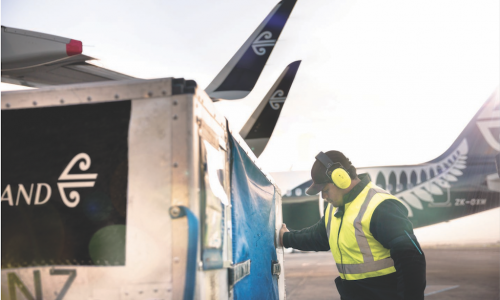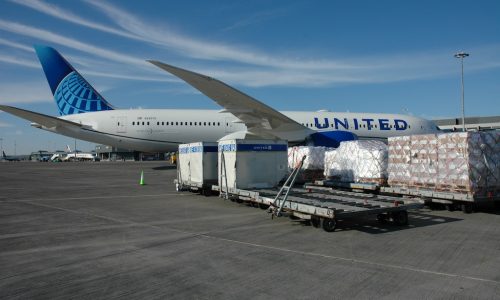UK chancellor Rishi Sunak’s wide-ranging budget statement has confirmed that eight freeports will be established in England.
The first tranche of freeports include successful bids from East Midlands Airport, Felixstowe/Harwich, Liverpool, Humber, Plymouth, Solent, Thames and Teesside. However more designations could be needed elsewhere to prevent regions losing out.
Commenting on the developments, Richard Ballantyne, Chief Executive of the British Ports Association said: “We welcome this as a first tranche of freeports in England but there will be regions that are disappointed not to have been recognised.
“These are an interesting selection of bids and we look forward to a continuing a partnership with Ministers who rightly recognise the critical role that ports can play in anchoring prosperity and supporting important industries in our coastal communities.
“It is important that the Government now considers how it can extend many of these benefits elsewhere if it is serious about its implementing its levelling up agenda.”
Ballantyne continued: “We hope that Government will keep an open mind on further bids in England and perhaps reconsider proposals for those ports not successful today, which still play a foundational role in supporting a number of growing sectors from logistics to offshore wind to tourism.
“Some elements of the freeports programme could easily be spread much further, helping to create more productive and high quality jobs without incurring significant costs to the exchequer or requiring complex oversight or administration. This would also help ease fears from sections of the industry about the Government’s intervention and perception of ‘picking winners’.”
In response to the chancellor’s announcement in the House of Commons, Thames Freeport said that it was ‘open for business’ after winning Government backing.
Stuart Wallace, Chief Operating Officer at Forth Ports (owner of the Port of Tilbury), said: “This is fantastic news and we are ready to hit the ground running. The freeport builds upon the successful completion of our new port, Tilbury2 and provides the platform for further expansion.
“The freeport policy’s special economic measures will turbocharge the best of the private sector, attracting value add manufacturing activity to the ports, the Thames Estuary and the wider South East, alongside supporting key infrastructure projects in the coming years. The Thames Freeport will be that catalyst to level up the left behind communities along the estuary.”
Dr Graham Hoare OBE, Chairman and Executive Director, Business Transformation, Ford of Britain, added: “The Thames Freeport will be a new centre of excellence for the country as we electrify, automate and digitise our future.
“The freeport provides Ford with a great opportunity as a test bed for a variety of customer-focused mobility technologies and other business opportunities at Ford Dagenham in the future.” Alan Shaoul, Chief Financial Officer at DP World in the UK (owner of the port and logistics park, London Gateway), commented: “We are open for business and would urge anyone looking to expand to get in touch to find out more about the benefits of locating at Thames Freeport.
“Our London Gateway site alone has almost 10m square feet of land that has planning consent, and the capacity to expand materially its operational area and therefore attract new foreign direct investment within the lifetime of this parliament.”
Kevin Bell, transport partner at law firm Womble Bond Dickinson, comments: “We welcome the fantastic news that the Government has decided to set up a Freeport on Teesside. This will undoubtedly help deliver transformational improvements and drive forward the levelling up agenda. This Freeport will bring millions of pounds of investment, create significant new jobs as well as support some the UK’s key sectors like clean energy, chemicals, transport and infrastructure to name just a few.
“The economic potential of the Freeport cannot be underestimated. It is huge and will play an important role in strengthening the North East’s future trading position.
“In order to realise the full benefit of Freeport, further transport and infrastructure investment will be essential (particularly as it is based on a multi-gateway, multi-modal model, with links to rail-enabled sites and Teesside International Airport).
“Excellent transport links will need to be established to support, for example, just-in-time logistics and operations within the Freeport.”
Bell continued: “It is also great to hear that a major part of Her Majesty’s Treasury will be relocating to Darlington, importantly including senior civil service posts that shape policy and decisions.
“This, alongside the recent changes to the Green Book appraisal process, has the potential to create a more vibrant and beneficial culture of decision-making for new transport and infrastructure schemes here in the North East (not to mention a beneficial increase in traffic on the East Coast Main Line and at Teesside International Airport).
“Yet it is extremely disappointing that the North East Freeport bid has, at this stage, been unsuccessful. And the Chancellor made no further comment or commitment (at least from the dispatch box) to rebuilding public confidence in using public transport, Northern Powerhouse Rail, HS2 in the North and plenty of other “shovel ready” transport projects that fall within the quick wins pipeline (such as road and rail schemes and electric vehicle charging points).

